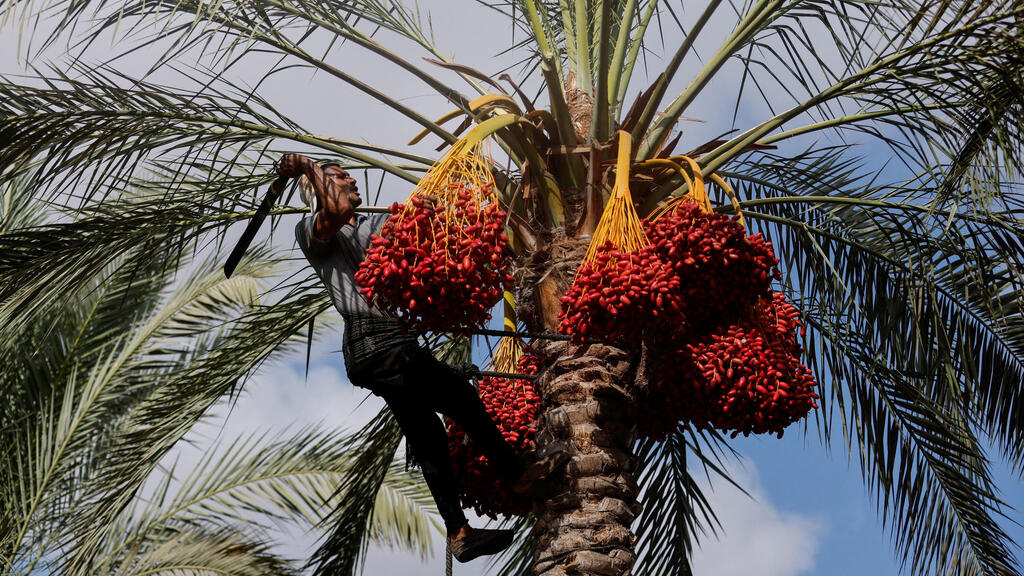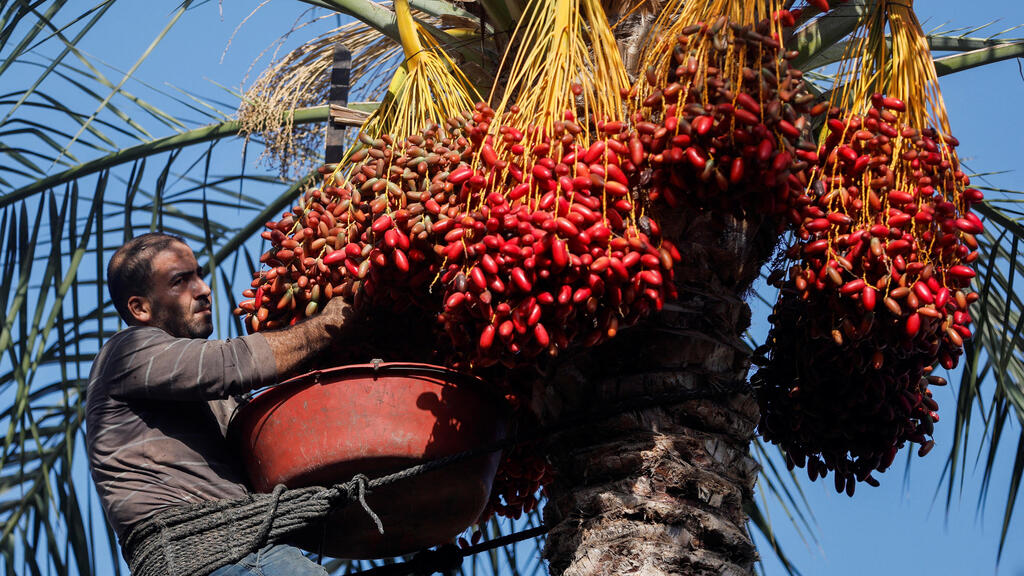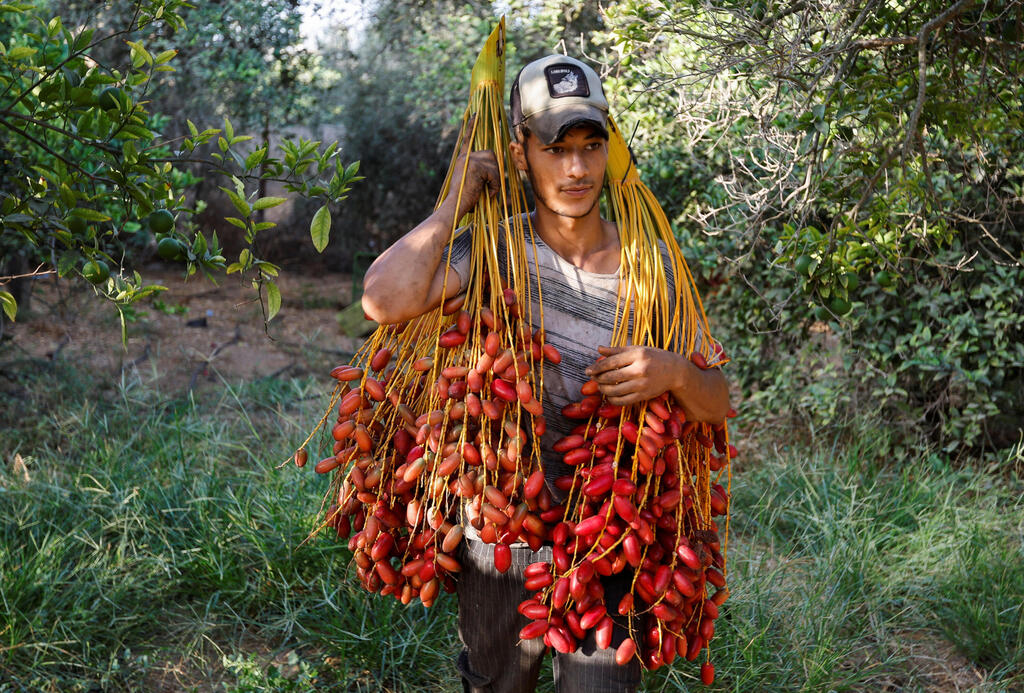Getting your Trinity Audio player ready...
Climate change helped cut production of dates in the Gaza Strip in half a year as unseasonal rain spoiled spring pollination, compounded by a hot summer, the Palestinian Agriculture Ministry and farmers said.
Adham al-Basyouni, an official from Gaza’s agriculture ministry said production of the palm fruit this year was expected to sink to 10,000 tons from 16,000 tons since 2020 after an unusually cold and wet spring.
"We had winter-like weather. We had changes in the climate that impacted the vitality of the pollen grains and flowers, and greatly harmed pollination," he said.
Dates are the main agricultural crop in Gaza, alongside strawberries, because the climate and soil is suitable for such, explained Abeer Butmeh, coordinator of the environmental NGO PENGON - FoE Palestine.
"Dates don't need much water. So with the limited water supply that we have in Gaza, the date is the best agricultural product," she said.
While it's difficult to identify how climate change influences specific weather events, scientists are adamant about how much more likely such events have been made by rising average global temperatures.
"There is a lot of seasonal shifting – droughts, water shortages, high temperatures in the day, low temperatures at night, rain for two days straight, no rain for two weeks after. This all affects agriculture tremendously," Butmeh said.
A recent report by The Cyprus Institute predicted that the east Mediterranean and the Middle East will experience temperatures rising nearly twice as fast as the global average, with overall warming of up to 41 degrees Fahrenheit or more by the end of the century.
The institute will present its report at the COP27 UN climate summit currently being held in Egypt. At the summit, Palestinian Authority Prime Minister Mohammad Shtayyeh said the issue for Palestinians is compounded by the conflict with Israel.
"People in Gaza are under two threats – climate change and the Israeli[-Egyptian] blockade," Butmeh said from Egypt, after a day of COP27 events.
Under blockade from Israel and Egypt – imposed after the power seizure by Hamas in 2007 – the enclave has limited access to outside markets for its agricultural produce.
"As environmental activists, our demand at COP27 is finding real solutions, not false, greenwashing ones that sometimes do more harm than good. We must make corporations accountable," she urged.
In Deir al Balah, a town in the central Gaza Strip, whose name means "Monastery of the Dates" after its famed oasis of palm groves, farmers are desperate.
"The whole date season was damaged," said farmer Uday Manna. "Every year we send dates to the West Bank, this year Deir al Balah has not got enough dates for Deir al Balah itself."




